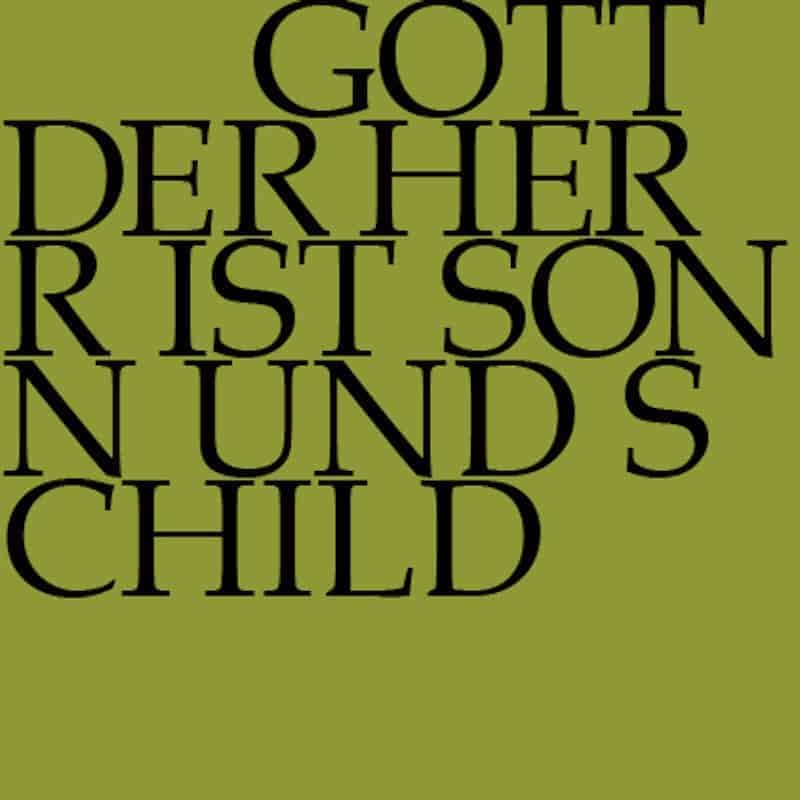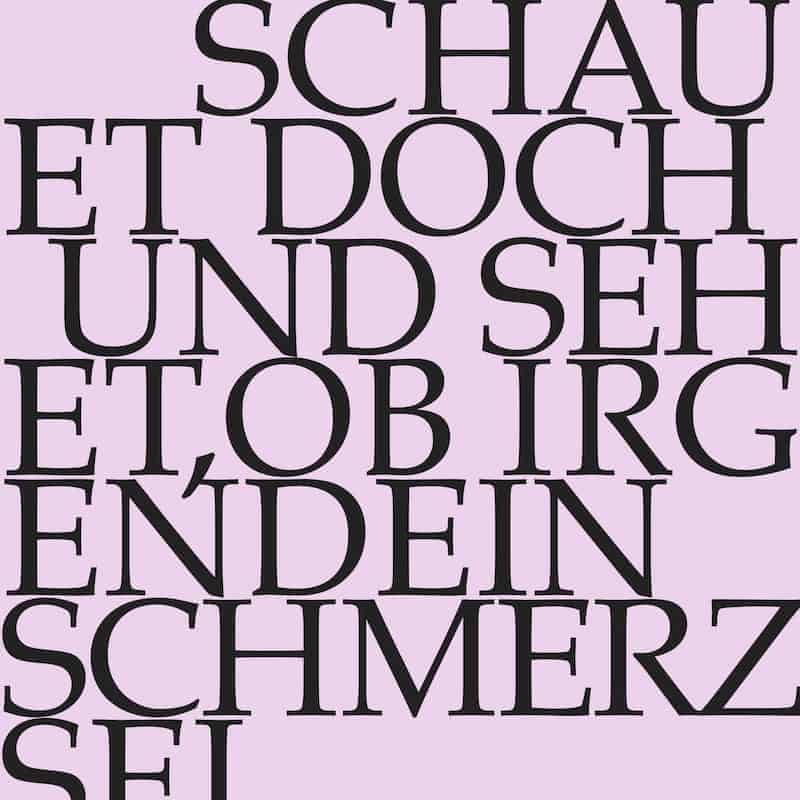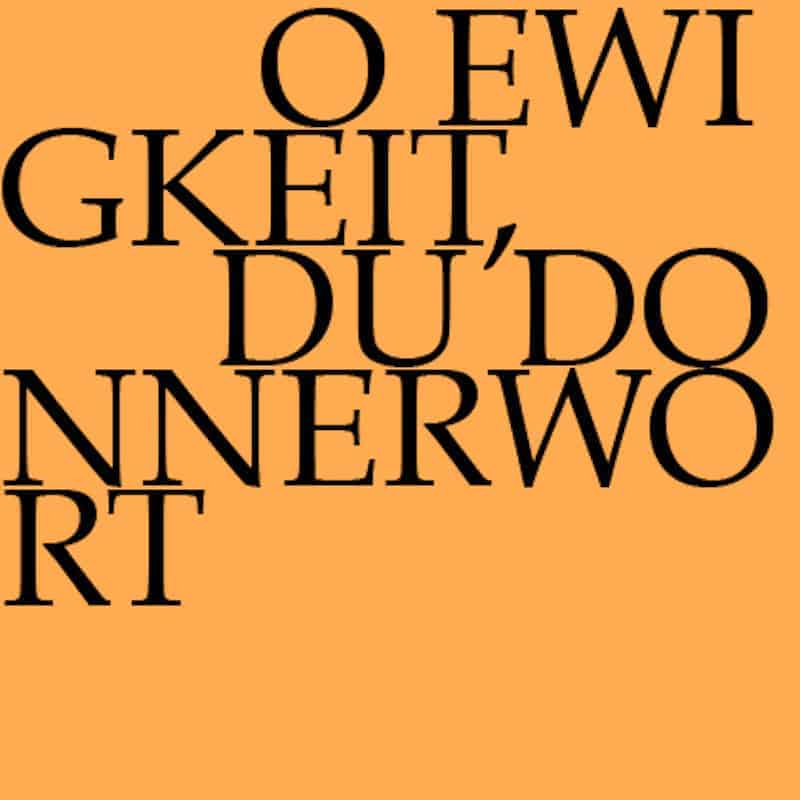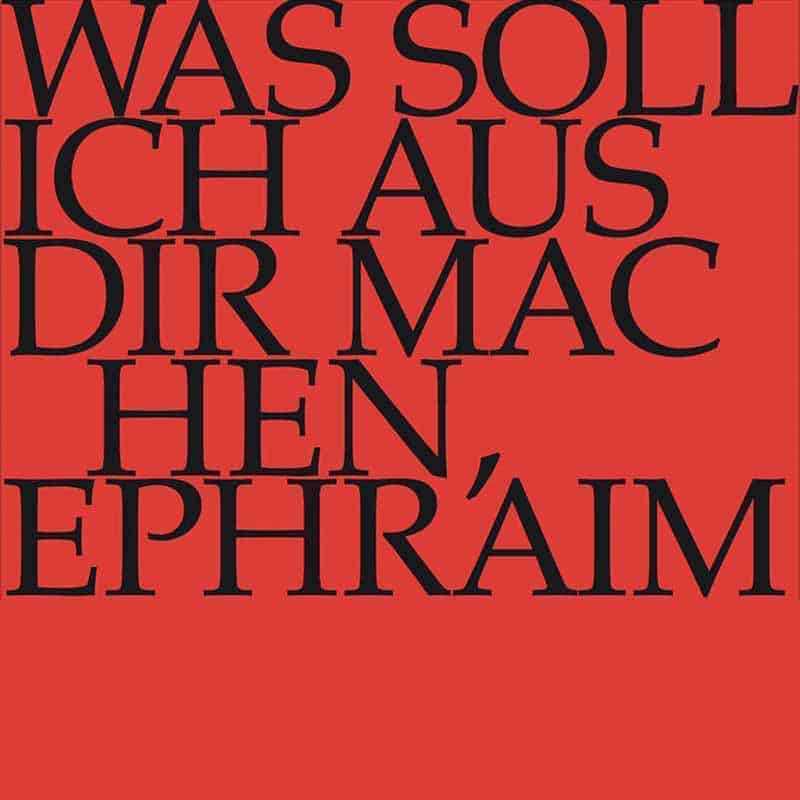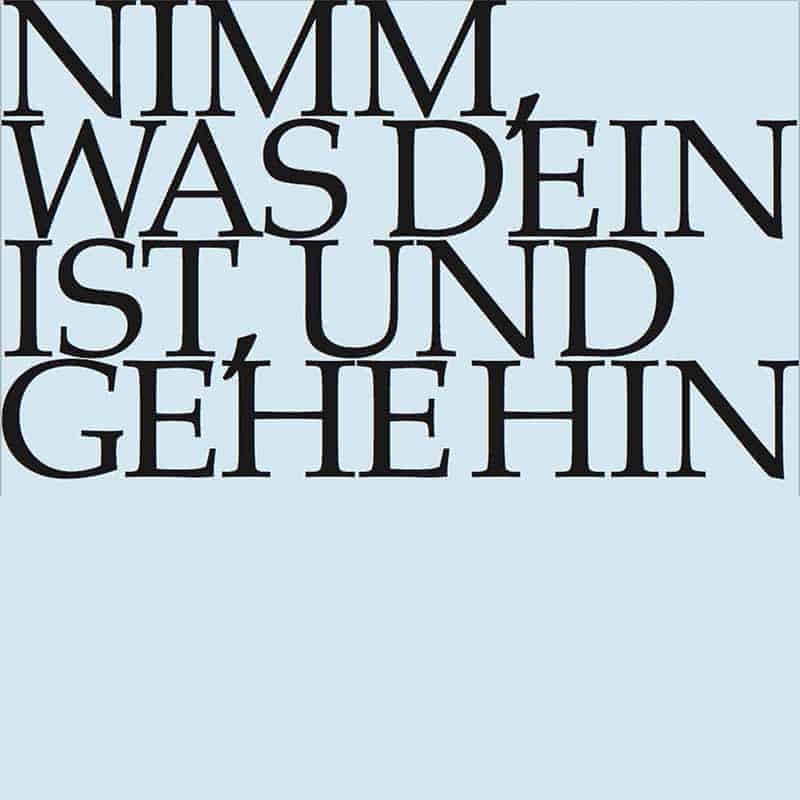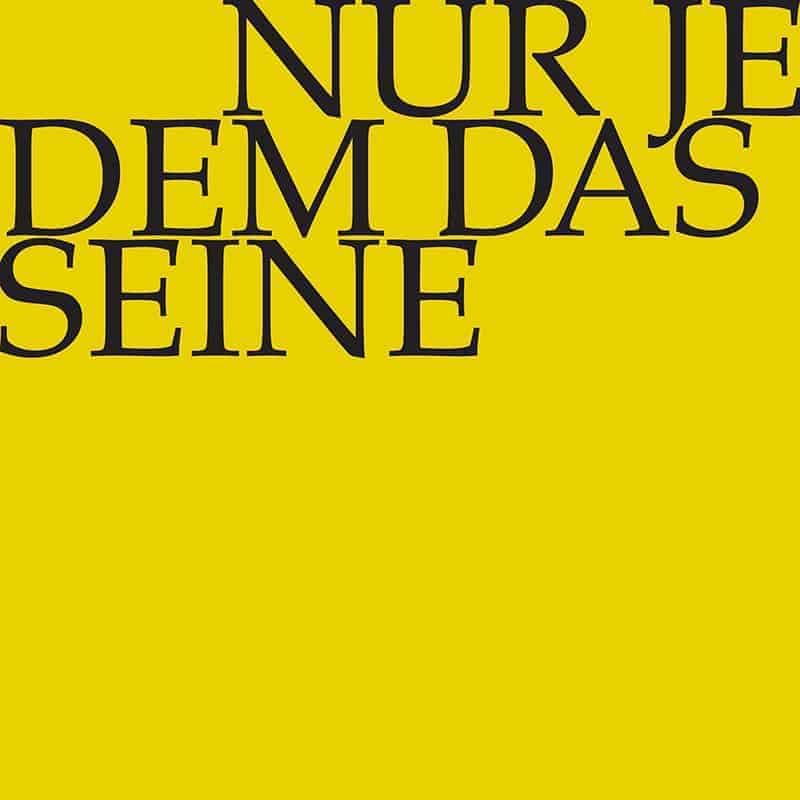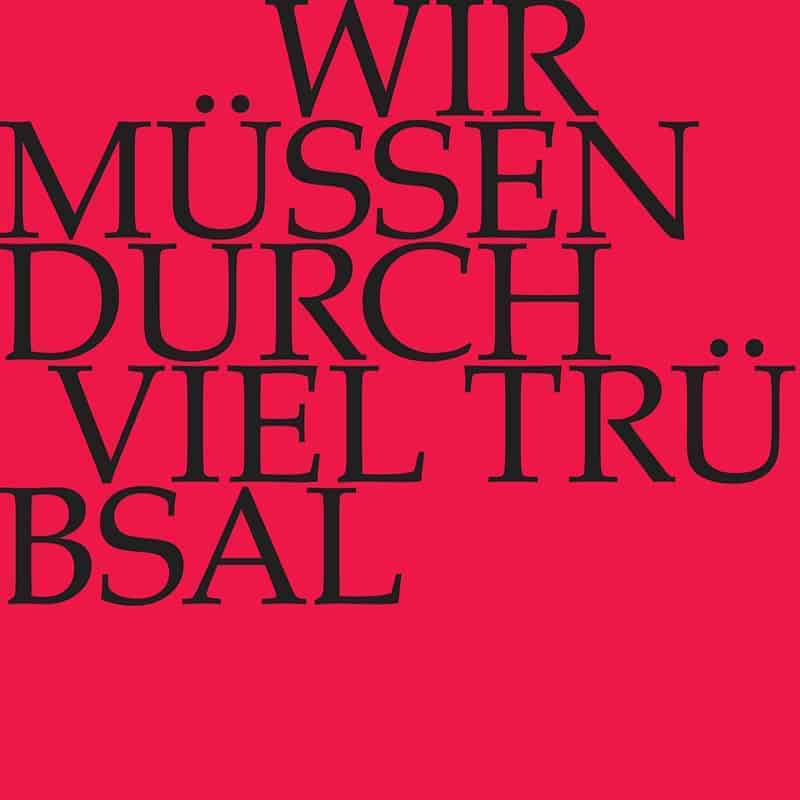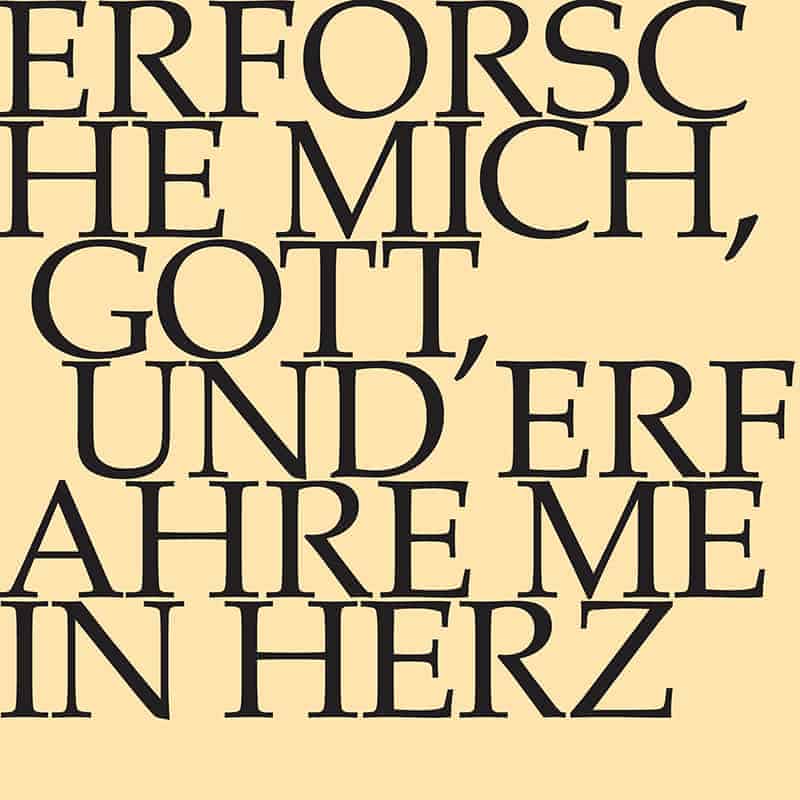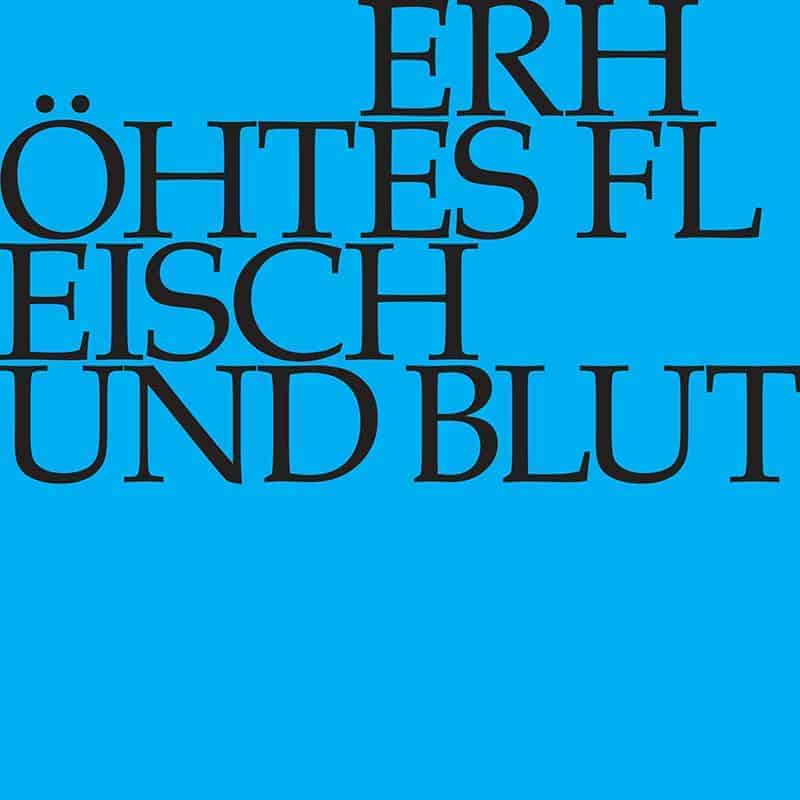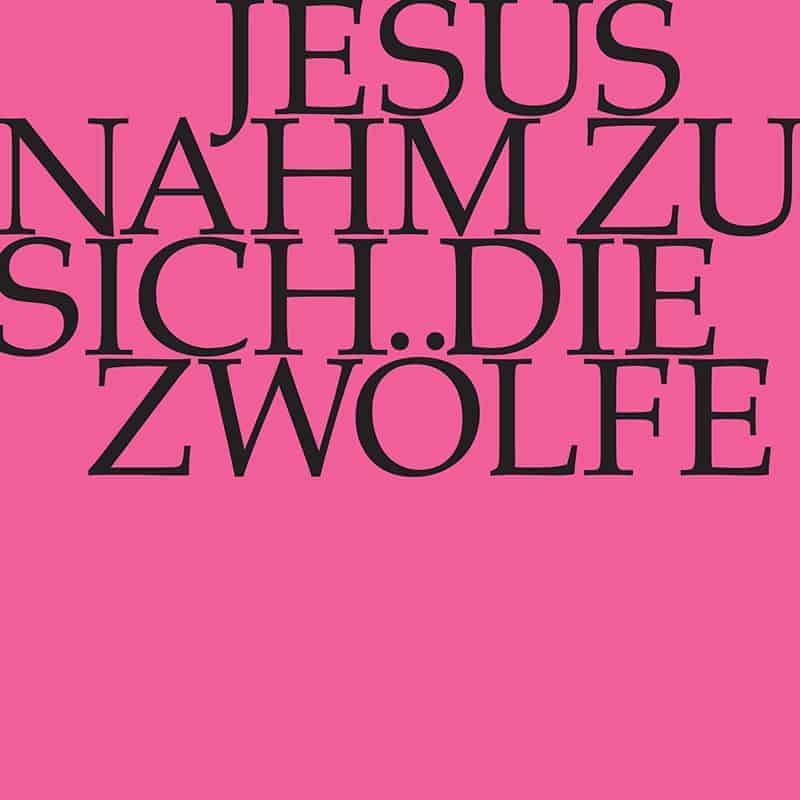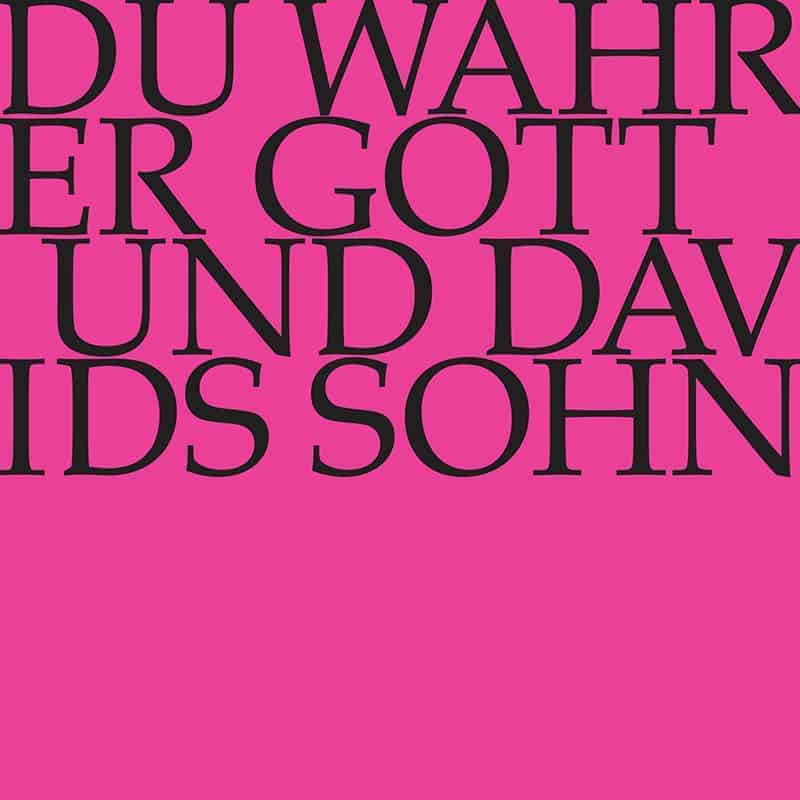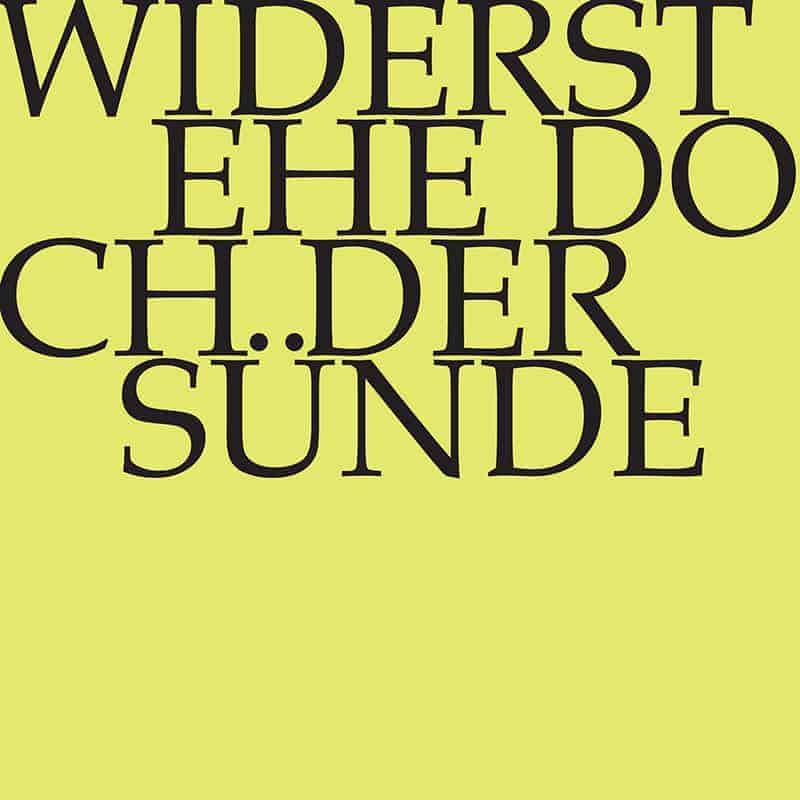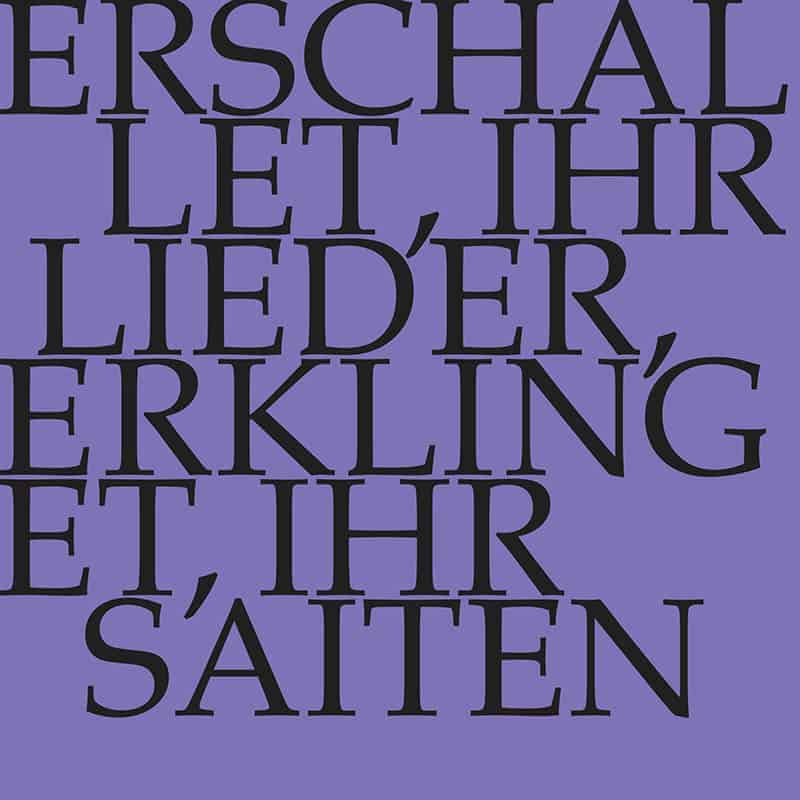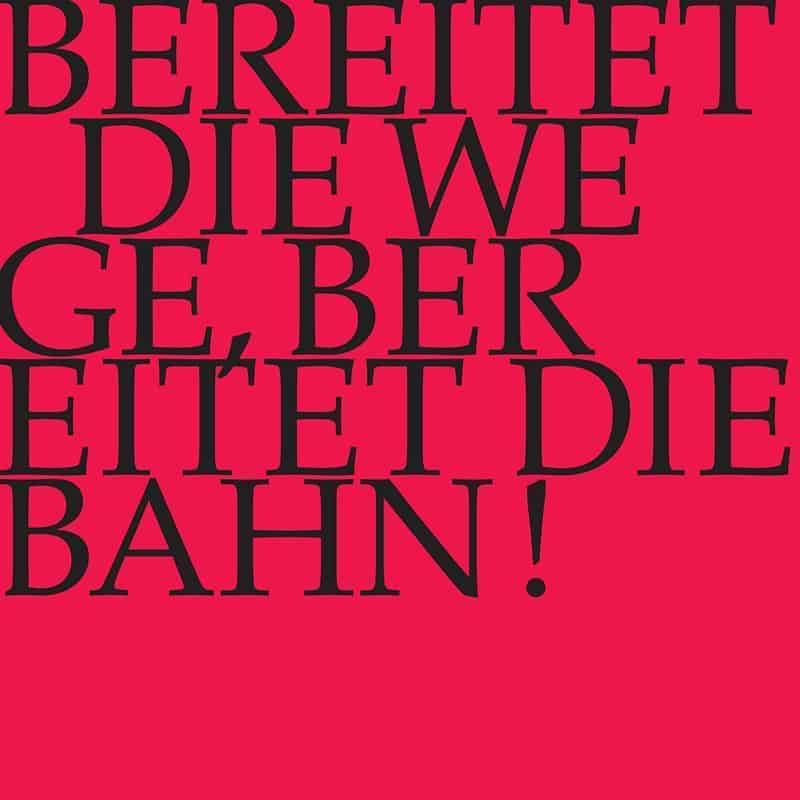(God is our true sun and shield!) for soprano, alto, tenor and bass, oboe I+II, horn I+II, timpani, strings and basso continuo Composed for Reformation Day in 1725, cantata BWV 79 (“God is our true sun and shield!”) is conceptually distinct from its more famous relation, BWV 80.
Archives
Schauet doch und sehet, ob irgendein Schmerz sei
(Look indeed and see then if there be a grief) for alto, tenor and bass, vocal ensemble, recorder I+II, oboe da caccia I+II, slide trumpet, strings and basso continuo Scenic intervention on the cantata text: Giovanni Netzer (text), Samuel Streiff (mayor), Martin Ostermeier (prophet)
O Ewigkeit, du Donnerwort
(Eternity, thou thundrous word) for alto, tenor and bass, vocal ensemble, oboe I-III, tromba da tirarsi, trumpet, bassoon, strings and basso continuo Cantata BWV 20, the first work in Bach’s second Leipzig cycle, was composed in 1724 for the First Sunday after Trinity. Based on a hymn by Johann Rist (1642), the libretto explores the … Read More
Was soll ich aus dir machen, Ephraim
(What shall I make of thee now, Ephraim?) for soprano, tenor and bass, corno da caccia, oboe I+II, bassoon, strings, organ and continuo
Nimm, was dein ist, und gehe hin
(Take what is thine and go away) for soprano, alto and tenor, vocal ensemble, oboe I+II, bassoon, strings and continuo
Nur jedem das Seine
(To each but what’s due him!) for soprano, alto, tenor and bass, violine I+II, viola, violoncello I+II, basso continuo The cantata “Nur jedem das Seine!” (To each but what’s due him!) BWV 163 forms something of a chamber-music pendant to the festive cantata BWV 119. This is not necessarily because it was composed in Weimar … Read More
Wir müssen durch viel Trübsal in das Reich Gottes eingehen
(We must pass through great sadness that we God’s kingdom may enter) for soprano, alto, tenor and bass, vocal ensemble, transverse flute, oboe I+II, taille, bassoon, strings and continuo
Erforsche mich, Gott, und erfahre mein Herz
(Examine me, God, and discover my heart) for alto, tenor and bass, vocal ensemble, horn, oboe, oboe d’amore, bassoon, strings and continuo
Erhöhtes Fleisch und Blut
(Exalted flesh and blood) for soprano, alto, tenor and bass, transverse flute I+II, bassoon, strings and continuo
Jesus nahm zu sich die Zwölfe
(Jesus took to him the twelve) for alto, tenor and bass, vocal ensemble, oboe, strings and continuo “Note: this is the audition piece for Leipzig” – this note by one of Bach’s Leipzig copyists on BWV 22 “Jesus nahm zu sich die Zwölfe” (Jesus took to him the twelve) confirms that this cantata was composed … Read More
Du wahrer Gott und Davids Sohn
(Thou, very God and David’s son) Version in C minor for soprano, alto, tenor and bass, vocal ensemble, oboe I+II, bassoon, strings and continuo.
Widerstehe doch der Sünde
(Stand steadfast against transgression) for alto, strings and continuo At first sight, the libretto and score suggest nothing spectacular. Comprising only two arias grouped around a recitative, BWV 54 reflects the simplest form of the new “sacred cantata instead of church music” (without bible texts and chorales) that was developed by theologist Erdmann Neumeister and … Read More
Erschallet, ihr Lieder, erklinget, ihr Saiten
(Resound now, ye lyrics, ring out now, ye lyres!) for soprano, alto, tenor and bass, vocal ensemble, trumpets I-III, timpani, bassoon, strings and continuo. Bach initially composed cantata BWV 172 in 1714 for Pentecost in Weimar, but revised and re-performed it several times throughout his Leipzig years, even transposing it from C major to D … Read More
Bereitet die Wege, bereitet die Bahn!
(Make ready the pathways, make ready the road!) for soprano, alto, tenor, bass, oboe, bassoon, strings and continuo. Written in 1715, Bach’s Weimar cantata for the Fourth Sunday in Advent “Bereitet die Wege, bereitet die Bahn” (Make ready the pathways, make ready the road!) BWV 132 is scored primarily for four voices, strings and continuo. … Read More


